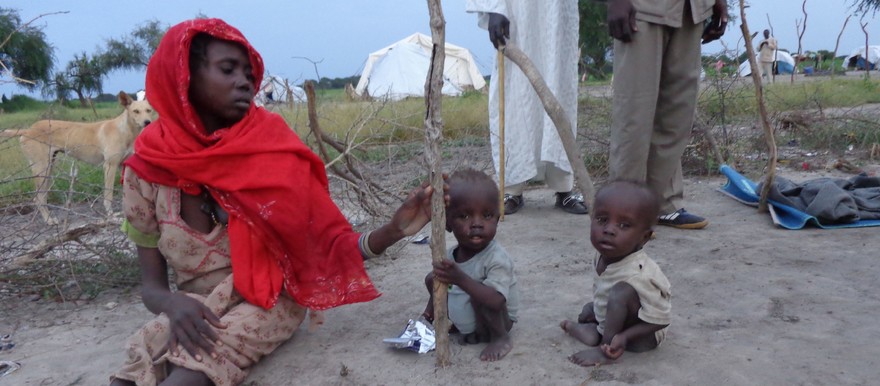Tens of thousands of people who fled fighting in Malakal have ended up scattered in villages across the river without any medical care whatsoever. Their presence in the area is putting a strain on food reserves and local markets.
Malakal, the state capital with a population of about 130,000 was largely depopulated over the last month and a half as the city twice fell into rebel hands. Most residents fled, while others were trapped at UN bases or churches in the city.
Thousands of Malakal residents crossed the Nile River into counties on the opposite bank including Fashoda. More than 250 people drowned in boat accidents in mid January during panicked flight from the city.
Owing to improvements in the security situation, aid agencies reported today improved access in Malakal and Melut, two towns on the east bank of the Nile. But even before the latest conflict began, the United Nations maintained no bases in areas along the west bank where many displaced are now sheltering, and there are no aid efforts yet reported there.
Fashoda County Commissioner Morris Adiang says that thousands of survivors of the Malakal events are scattered throughout his county: “They’re not staying in one place. The people were dispersed around, and they’re not staying in the towns.”
“The one place where there’s quite a lot of people is Ajak in Lul Payam, and there are also some people staying in Wau, which is in Manyo County,” he said.
Speaking to Radio Tamazuj on Friday in Kodok, the commissioner explained that the local Relief and Rehabilitation Commission had trouble estimating the total number of people who had arrived in the county since the start of the conflict, owing to the wide dispersal of people throughout the county. But he stated, “About 30,000 residents of Malakal came and are staying among us.”
The new arrivals are putting strains on local markets and schools. According to the county official, the children who came to Lul and Ajak are going to school, but those who came to Kodok are not. He noted also that some lorries arrived in the last few days from South Kordofan State, bringing goods from Sudan, which has relieved some of the pressure on the local markets.
Adiang also pointed out that there are no doctors in the county. “Here the situation in the county is bad. Actually, since I took over here as commissioner, I never found any doctor at all in any of our health centers. There is only one physician’s assistant here,” he said.
“We tried to request medicine from aid organizations, whether international or national ones, to try to bring some help to people, but there’s no organization that came to help people,” he added.
In the county there is one main health centre at Kodok and 14 clinics elsewhere. Three of the smaller clinics plus the main centre at Kodok were working before the conflict started, but since the crisis only the Kodok centre is still open.
Commissioner Ajang said he already met the state governor and health minister recently but did not expect any help from that quarter: “Honestly I tried to talk to our (health) ministry in Malakal to try to send us medicine, but it happens that the situation in Malakal itself is not okay either, so that they could send us.”
The commissioner appealed to aid organizations both local and international to make an effort to bring help to the displaced people in the different parts of the county, including health services, shelter and food.
Shilluk leaders call for aid
Fashoda County lies within the Shilluk Kingdom, home of the Shilluk or Chollo people. A committee of intellectuals from the region speaking in Juba on Thursday warned of a grave humanitarian crisis in their homeland.
Speaking at a press conference at the New Sudan Palace Hotel in Juba, several prominent community leaders appealed for aid in four counties.
“Prof. Joshua Otor Akol said currently IDPs are scattered over the four counties of Chollo Kingdom: Manyo, Fashoda, Makal and Panyikango while a considerable number has crossed the international border into the Republic of Sudan for refuge in the adjacent states and beyond,” Gurtong reported.
The leaders put the number of displace people in the counties of Manyo, Fashoda, Makal, Malakal town and Panyikango at 305,000, though it was not clear how they had arrived at the estimate.
File photo: A woman and her children in Kodok, Upper Nile, October 2013. They were part of a group of about 1400 Nuba refugees who came to the area from Kau Nyaro in neighboring Sudan before the latest crisis started in South Sudan (Radio Tamazuj)
Related: MSF forced to leave as security worsens in South Sudan’s Malakal (Reuters, 17 Jan.)




